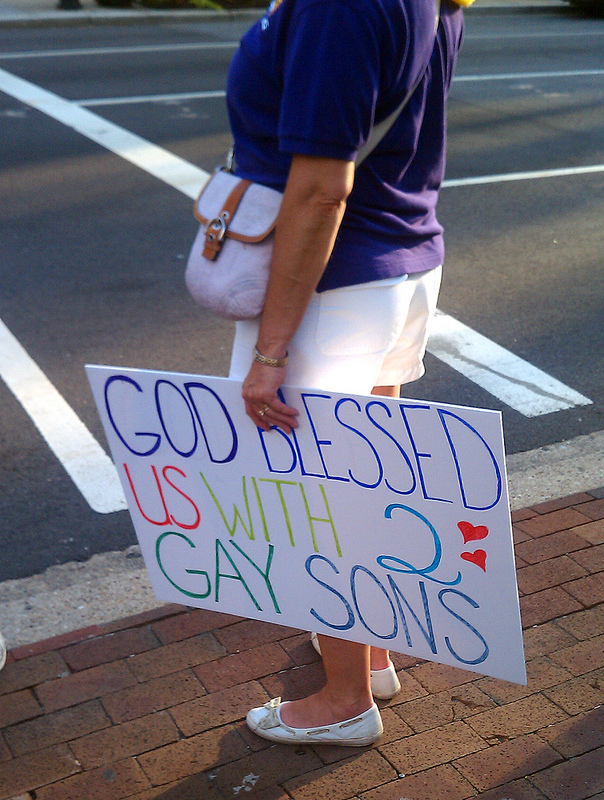One country’s loss is another country’s gain. A recent landmark judgement by India’s supreme court – reinstating criminal status for homosexuality – is likely to force its gay population to leave the country fearing persecution and prosecution.
One such case is of Sukhwinder Sukhwinder and his partner Jagdish Kumar.
In what could be termed as converting adversity into opportunity, the gay couple from a conservative part of India found a new life – in the US.
When Sukhwinder fell in love with Jagdish in India’s Chandigarh, he felt that their relationship had bleak future. He had seen his uncle getting beaten up by his family when he came out of the closet.
Being gay is a taboo in India, and a recent judgement by the country’s apex court has made it illegal too.
With no hope of being able to pursue their relationship in his hometown, the pair decided to leave the country. This was June 2012, much before India’s apex court criminalised sodomy in December 2013.
The pair visited many countries before arriving in Texas on foot, and immediately claimed asylum in the US. They had a genuine reason – they feared persecution because of their sexual orientation if they returned to India.
They thought that this would be a straightforward case. Instead, their visit to the immigration department culminated in an arrest and detention.
The hope of new life together had reduced to the confines of a detention facility, where they were separated from each other.
Not wishing to give up fight, they approached Immigration Equality, a charity that works for the protection of lesbian, gay, bisexual, transgender, and HIV immigration rights.
The charity took up their case, which marked the beginning of a legal battle.
Despite relatives who had volunteered to take them in, the government denied their request for parole many times.
Immigration Equality believed that there was no legal reason they should be denied release while they waited for their asylum hearing.
However, the Indian apex court’s recent decision to re-criminalize gay union improved the prospects for the Indian couple. It solidified their case for asylum in the US.
Clement Lee, a staff attorney with Immigration Equality, successfully pleaded for asylum which was granted to the couple on 20 December 2013.
“He (Jagdish) was afraid his family would kill him if he didn’t marry a woman,†Clement told a newspaper. “He felt he would be poisoned or strangled or burned alive by homophobic people,â€
Jagdish and Sukhwinder now live in Wisconsin – a state that prohibits gay marriage, but recognizes domestic partnerships.
As political refugees, they can live and work indefinitely in the U.S.
The decision has now shown a ray of hope for the growing LGBT community in India. According to a Forbes India estimate, there are 30 million LGBTs in India, and this number is likely to grow as more people choose to disclose their sexual orientation.
Disappointed with Section 377 verdict, it is an unfair ruling in my opinion. I believe it has set India back: Aamir Khan to NDTV
— NDTV (@ndtv) January 2, 2014
Section 377: The judgment strikes at the root of the dignity. It falls foul of the principles in our Constitution
— Mallick Robin (@robinmallick) January 3, 2014
Under India’s 153-year old Indian Penal Code, Section 377, homosexuality was a criminal offence until Delhi High Court passed a welcome judgement in 2009, decriminaling gay sex. However, India’s apex court reversed the high court’s judgement in December 2013, and left it for the Indian Parliament to legislate on the issue.
The supreme court judgment on the decriminalisation is indeed a huge let down. such a case should never have been heard by two judges only.
— Harish Salve (@hsalve) December 11, 2013
The supreme court’s decision against LGBT union has drawn heavy preotests and criticism in India, including from celebrities.
Judging the pulse of public opinion, the ruling UPA government has decided to re-look into the century-old law designed during the British Raj.
These draconian laws could force LGBT couples to leave India in search of safer shores. This would be a huge financial and cultural loss for India.
According to Out Now, a marketing agency that specialises in marketing to LGBT audience, the revenue potential from India’s 30 million gay people is Rs. 1.5 lakh crore. The Greater Philadelphia Tourism Marketing Corporation, which ran a successful gay marketing campaign, claims that for every dollar invested in gay tourism, $153 was earned in visitor spending.
India should tap this potential by changing repressive laws.
America, on the other hand, will have a different challenge.
The United States’ decision to grant asylum to Jagdish and Sukhwinder could also open flood-gates of straight migrants pretending to be queer so as to seek asylum in the US.
India Supreme Court verdict on Section 377:


Leave a Reply